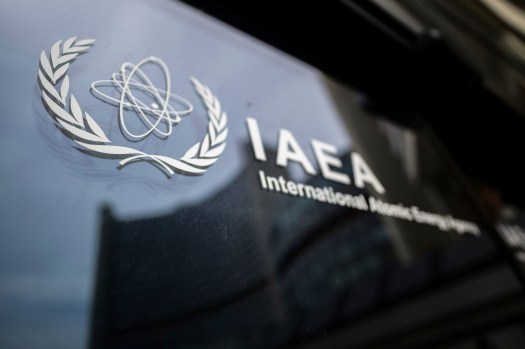By Kareem Chehayeb and Nasser Karimi
TEHRAN (AP) Ahead of the nuclear watchdog’s first visit since Tehran severed relations with the agency last month, the Islamic Republic’s Foreign Ministry said Monday that talks between Iran and the International Atomic Energy Agency will be complex and technical.
Related Articles
-
Migrants returning to Venezuela face debt and harsh living conditions
-
Trump suggests he ll know if Putin wants a peace deal with Ukraine soon into their meeting
-
A pause on higher tariffs for China is due to expire Tuesday. Here s what to know
-
Israel targets and kills Al Jazeera correspondent Anas al-Sharif in Gaza as journalist toll grows
-
Europe and Ukraine leaders seek talks with Trump to defend their interests ahead of US-Russia summit
After Israel and the United States engaged in a 12-day air battle in June during which important Iranian nuclear facilities were attacked, ties between the two countries worsened. A day before Israel launched the war-starting airstrikes over Iran, the IAEA board declared on June 12 that Iran had violated its non-proliferation commitments.
Regarding the visit by the deputy head of the IAEA, which will not involve any scheduled access to Iranian nuclear sites, the agency did not immediately release a statement.
Iranian Foreign Ministry spokeswoman Esmail Baghaei told reporters that a meeting with Foreign Minister Abbas Aragchi may take place, but that it is too soon to tell what the outcome of the negotiations would be because they are complex and technical.
Baghaei also took issue with the IAEA’s special circumstances during the June conflict with Israel.
Strikes targeted peaceful facilities in a nation under round-the-clock surveillance, and the agency failed to respond sensibly and rationally or denounce it as needed, he said.
Aragchi has previously stated that collaboration with the agency will involve redefining how both sides work together. This cooperation will now need clearance from Iran’s highest security authority, the Supreme National Security Council. The ruling will probably make it more difficult for inspectors to follow Tehran’s program, which was enriching uranium to levels close to that of bombs.
After the United States destroyed three significant Iranian nuclear sites during Israel’s air war with Iran, which killed close to 1,100 people, including numerous military officers, Iranian President Masoud Pezeshkian on July 3 ordered the country to halt its cooperation with the IAEA. 28 Israelis were killed by retaliatory Iranian strikes.
It is uncertain when Tehran and Washington will resume negotiations for a nuclear program agreement, as Iran has previously used limited IAEA inspections as a pressure tactic in negotiations with the West.
Although Tehran had been enriching uranium up to 60%, a short technical step away from weapons-grade levels of 90%, U.S. intelligence services and the IAEA had determined that Iran had last had a formal nuclear weapons program in 2003.
From Beirut, Chehayeb provided a report.








